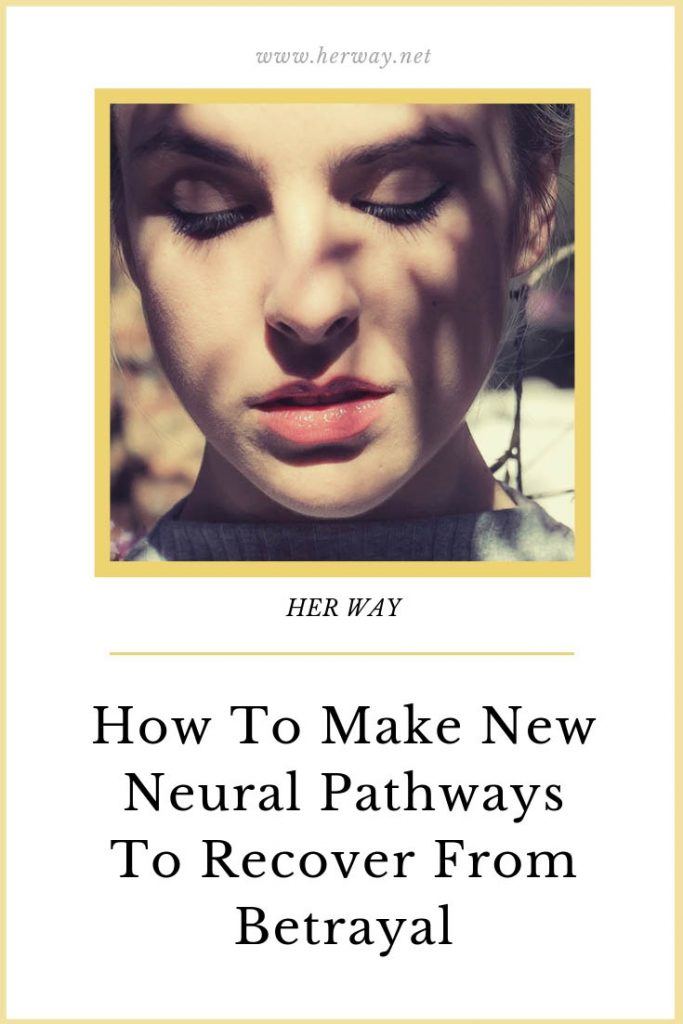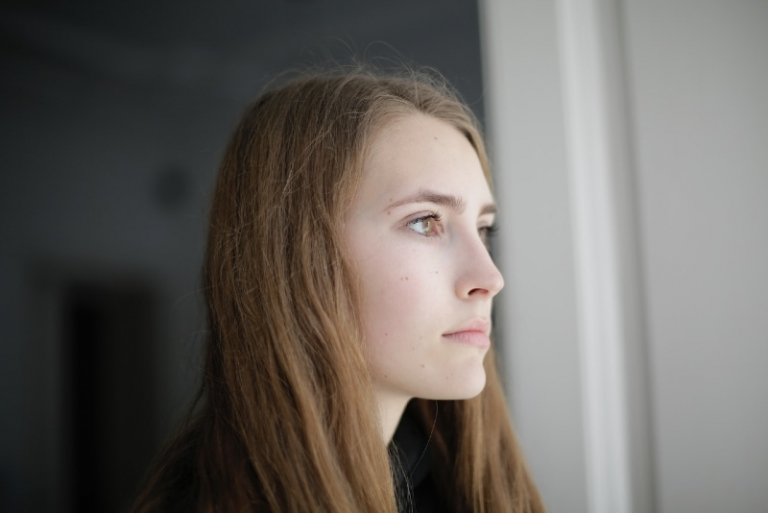How To Make New Neural Pathways To Recover From Betrayal
Neuroscience has helped to reveal that heartache is as painful and real to the brain as physical pain. So, there is good news—just as we know we can heal from physical pain, we can heal from emotional distress as well.
Physiological healing is the body’s cells regenerating or repairing to reduce the size of the distressed/damaged area to restore the body to normal functioning.
Emotional healing is less mechanistic than this but otherwise follows a similar restoration path. Emotional healing happens when the brain replaces painful events with restorative images—those which will promote behavior that promotes safety, growth and well-being, thereby restoring the normal function of the mind.
If you have ever been betrayed, you will know how much it hurts and it leaves us devastated and questioning everything about the relationship—this can be romantic or platonic.
My experience with betrayal comes from an ex. I loved him and up till that point, thought our relationship could survive anything.
One day I woke up and found myself blocked on all social media, even texting apps. I tried to call but it was going straight to a dead tone. I asked our friends what had happened but nobody would tell me anything. A few days later his friend sent me a link to my ex, John, signing a book deal. The amount of time we had spent talking and wishing for our books to become a reality, I couldn’t understand why he wouldn’t have told me that.
It was a couple of months later that the real scale of betrayal started to unfold. In the time we hadn’t spoken, John had married and not only this but he’d had his book published; but the book had a lot of my words and words we had shared, letters and poems we had sent each other.
Now strangely, his marriage is something I can forgive him for but he took our words, our memories, and made them into a book without even telling me. The hurt of the betrayal and the deception is hard to forgive. I was left wondering what had been real and what hadn’t.
What John did was tarnish our memories and rob me of a person who was a massive part of my life. He used his own selfish needs to hurt and manipulate someone who genuinely cared about him. I no longer look at him and see someone I once loved. Instead, I see a stranger who loved me so little that he left me feeling empty.
The reason I want to share this story is to encourage others to find peace with events that have happened to them. Don’t let the experience make you bitter or destroy the confidence in yourself or let it affect future relationships.
This is your journey and no matter what, you are loved and worthy, despite other people’s actions. No matter what you have experienced or what has happened to you on your life journey, you must find a way to make peace with it. Otherwise, it will find a way to lower your self-esteem and your self-worth.
For a long time, John became a trigger point for me; as soon as I heard his name, I would have tears rolling down my face, I would have a panic attack to the point where I couldn’t breathe, then my mind would start to race with all those unanswered questions, over and over.
But it’s a funny thing—our human brain lies. It looks for absolutes to create a narrative with you and yourself, a narrative that can, if not careful, paralyze us in a set state of fear and self-judgment. My inner dialogue went along these lines—it couldn’t have been John that had betrayed me, because he had been the best human I knew. Therefore, it had to be me; I couldn’t have been good enough for him, I talked too much, I was thick-headed or I didn’t support him enough.
The cycle of self-doubt and cruelty went on endlessly. I had to find a way to forgive him, not for his sake but mine, to ease my bruised ego, to stop the self-doubt.
Restorative Images
A restorative image is the emotionally-laden bit of our imagination that eases pain by shifting mental focus from loss to growth. They remind us that our sense of who we are rises from what we have gained in life, rather than what we have lost or suffered. Our ability to grow as humans continually strengthen this.
The most powerful restorative images are those that can reinforce our deepest values, such as basic humanity, connection, love and compassion. Emotional healing is largely reconditioning your brain to associate restorative images with painful memories.
To recover from betrayal, we must ease that pain to look at how we can grow from it. So reflect on this scenario or grow from it—what was the reason for John being in my life? What was the intended lesson? Once we have learned the lesson, it becomes less painful, less of a trigger. We can remember those moments without the emotional trauma attached to it.
I had been stuck in a pattern and routine of my life in doing what was expected of me because of my obligations and responsibilities. My biggest attraction to John was his creativity, he was so proud and unapologetic to show the world this side of himself. This was a side of me that was buried deep below the surface, that was so scared to grow.
John encouraged me to awaken this side of me. He taught me a lot about myself and if I’m honest, I liked the person I was becoming. He was a massive part of my journey in my pursuit of happiness, so, for this reason, I thank him.
Reconditioning our brain
Brain conditioning is a process of repeating mental associations until new habits, or new neural firings, are formed. The vast majority of our emotions are conditioned by past experiences—a stimulus-response situation.
Unfortunately, our brains can be slightly lazy and choose the option that requires the least amount of energy. So, conditioned responses are metabolically cheap because they consume little energy compared to conscious intentions (for example, let’s apply this to emotional eating—it is easier to respond to uncomfortable emotions by comforting them with food, as this is our conditioned response.
Rather than consciously dealing with the emotion, as that would take more energy, a consciously decided action is hundreds of millions of multi-firing neurons).
There is only one way our brains can form new habits and that is through the repetition of new associations. Therefore, we must practice associating restorative images with memories of pain. In time, that pain will ease. But don’t worry—in general, it takes less iteration for a more pleasant habit to replace a painful one.
In our pursuit of happiness, in order to love who we are, we cannot hate the experiences that shaped us. Everything that has happened to me through the years, no matter how painful it was, has shaped me into the human I am today. Yes, I am flawed, yes I make mistakes, but I am human, I learn, I reflect and I grow.
These are some points to remember-
Step 1 – Accept the reality of the situation.
Don’t try to overthink or escalate events in your mind (as we are all guilty at times of making things that have caused us hurt to be worse than they are).
Accept what has happened, how you felt and how this impacted on your life.
Remember whatever feeling and emotion you are experiencing is valid.
Step 2 – Grow through it.
Reflect on the situation and what lessons can be learned going forward in your life.
Step 3 – Consider them.
By considering why the person acted like they did may give us some confirmation of the situation (but remember this does not mean that the behavior is being condoned).
We are all humans and we all have our own flaws. Ask yourself did they act from limiting beliefs or what need were they trying to meet?
Although this is hard, it will help us to see the situation from a different point of view. The situation will be a reflection of the other person, not us.
Step 4 – Move on.
The greatest reaction you can have is to live your life as though it didn’t happen, live a happy life. Don’t be defined by your past but use it to grow and be determined to live a better life because of it.
Forgiveness should come from a place where you do it for you and no one else.
Create peace within yourself. By forgiving, you are letting go of grievances and judgments you may hold, allowing yourself to feel better. Release those negative emotions and gain a positive outlook.
It’s one of the greatest gifts you can give yourself, to forgive. Forgive everybody. – Maya Angelou
Frankie Samah
[email protected]
Instagram @frankiesamah








